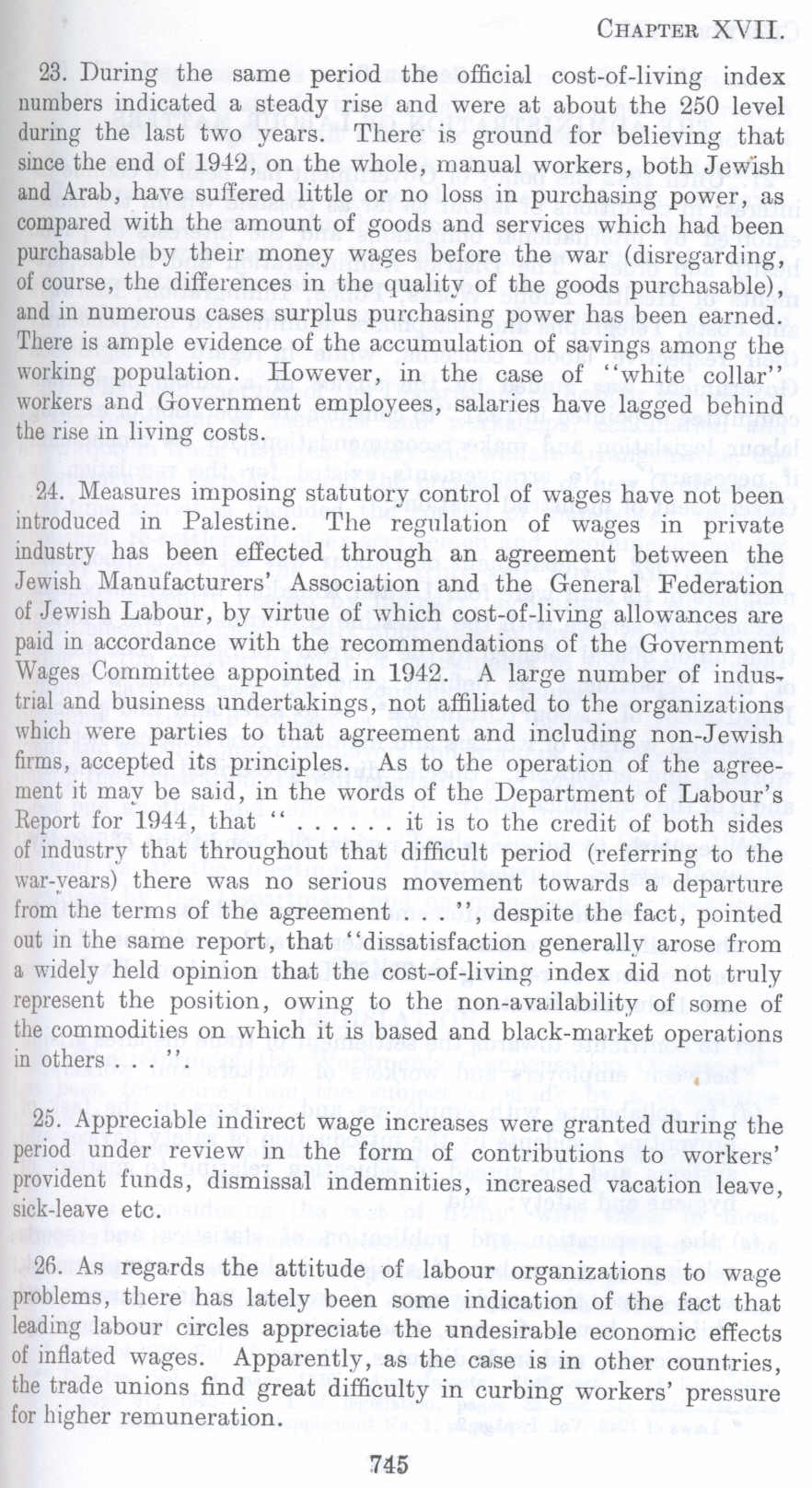| Prev | Next |  |
| Prev | Next |
| PalestineRemembered | About Us | Oral History | العربية | |
| Pictures | Zionist FAQs | Haavara | Maps | |
| Search |
| Camps |
| Districts |
| Acre |
| Baysan |
| Beersheba |
| Bethlehem |
| Gaza |
| Haifa |
| Hebron |
| Jaffa |
| Jericho |
| Jerusalem |
| Jinin |
| Nablus |
| Nazareth |
| Ramallah |
| al-Ramla |
| Safad |
| Tiberias |
| Tulkarm |
| Donate |
| Contact |
| Profile |
| Videos |
British Mandate: A Survey of Palestine: Volume II - Page 745 |
Disclaimer
The above documents, article, interviews, movies, podcasts, or stories reflects solely the research and opinions of its authors. PalestineRemembered.com makes its best effort to validate its contents.


Post Your Comment
*It should be NOTED that your email address won't be shared, and all communications between members will be routed via the website's mail server.
23. During the same period the official cost-of-living index numbers indicated a steady rise and were at about the 250 level during the last two years. There is ground for believing that since the end of 1942, on the whole, manual workers, both Jewish and Arab, have suffered little or no loss in purchasing power, as compared with the amount of goods and services which had been purchasable by their money wages before the war (disregarding, of course, the differences in the quality of the goods purchasable), and in numerous cases surplus purchasing power has been earned. There is ample evidence of the accumulation of savings among the working population. However, in the case of "white collar" workers and Government employees, salaries have lagged behind the rise in living costs.
24. Measures imposing statutory control of wages have not been introduced in Palestine. The regulation of wages in private industry has been effected through an agreement between the Jewish Manufacturers' Association and the General Federation of Jewish Labour, by virtue of which cost-of-living allowances are paid in accordance with the recommendations of the Government Wages Committee appointed in 1()42. A large number of industrial and business undertakings, not affiliated to the organizations which were parties to that agreement and including non-Jewish firms, accepted its principles. As to the operation of the agreement it may be said, in the words of the Department of Labour's Report for 1944, that " . . . . . it is to the credit of both sides of industry that throughout that difficult period (referring to the war-years) there was no serious movement towards a departure from the terms of the agreement ... ", despite The fact, pointed out in The same report, that "dissatisfaction generally arose from * widely held opinion that the cost-of-living index did not truly represent the position, owing to the non-availability of some of the commodities on which it is based and black-market operations m others . . . .
25. Appreciable indirect wage increases were granted during the period under review in the form of contributions to workers' provident funds, dismissal indemnities, increased vacation leave, sick-leave etc.
26. As regards the attitude of labour organizations to wage problems, there has lately been some indication of the fact that leading labour circles appreciate the undesirable economic effects of inflated wages. Apparently, as the case is in other countries , the trade unions find great difficulty in curbing workers' pressure for higher remuneration.
745